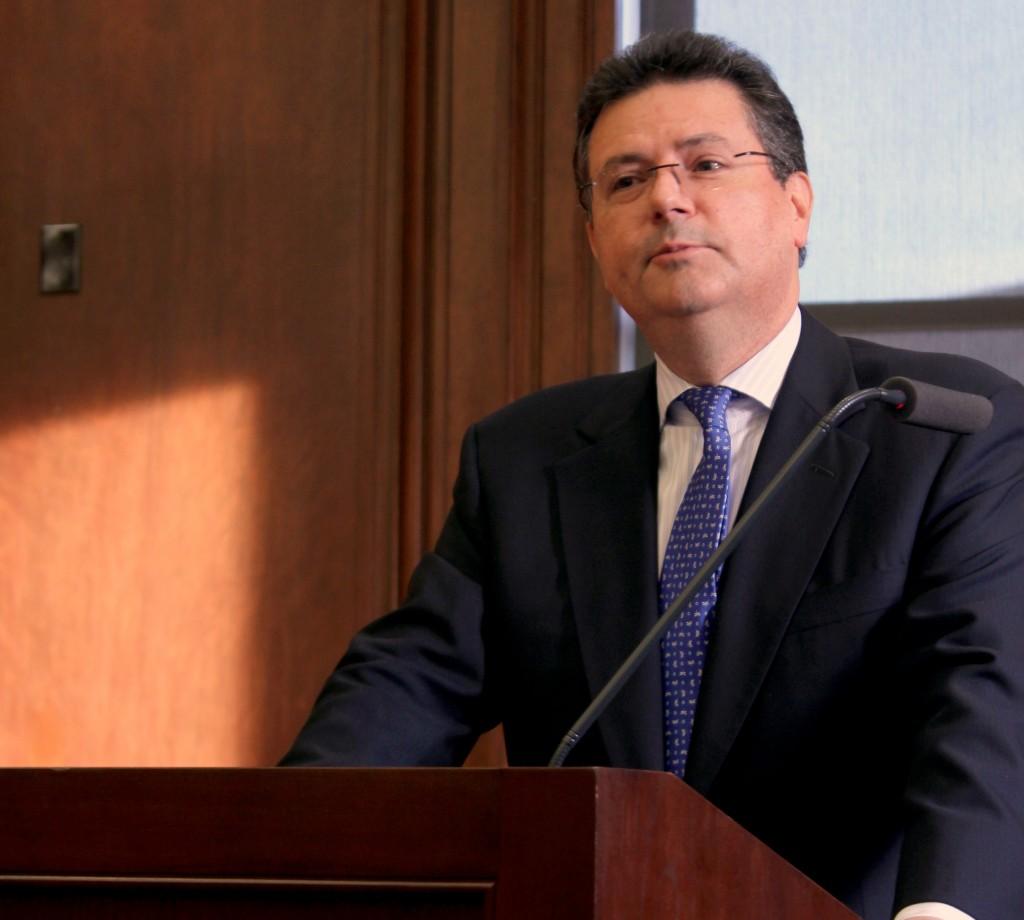The Brazilian consul general in Chicago spoke to Northwestern students Monday night as part of Global Languages Initiative’s effort to promote international languages.
Paulo Camargo detailed to a packed room in Harris Hall both his career journey and the way his life has affected the languages he chose to learn. When he decided to become a diplomat, the Brazilian Diplomatic Academy mandated proficiency of English and French, so he began the process of learning two foreign languages, he said.
Sarah Nicholus, who is considering attending graduate school at NU, said she was particularly curious about teaching methods in Brazil, where she worked as an English teacher and teaching coordinator. She said she attended Camargo’s talk because she is evaluating different graduate Portuguese programs.
Nicholus studied Spanish in high school and college, transitioning to Portuguese during her two-year stay in Brazil on a Fulbright grant.
“My first three months I was speaking Spanish and throwing in new words,” Nicholus said. “I learned it all speaking so I never officially studied Portuguese, so most of my grammar is all from Spanish. I said to myself, ‘OK, now I need to officially study Portuguese to get that academic-level Portuguese.'”
Camargo said he has seen a large movement of English teachers going to Brazil to teach at the American schools there. He also said that the Portuguese language is on the verge of being internationalized.
Weinberg sophomore Colin Egan, who has Brazilian citizenship through his mother, said he has family living in Brazil and has visited the country but does not have a working knowledge of Portugese. He said he is currently enrolled in Portuguese at NU in an effort to change that.
“I can understand a lot of what is being said, but I have a hard time reading and writing,” Egan said.
Camargo said students like Egan have their work cut out for them.
“Don’t be fooled,” Camargo said. “To learn a foreign language really demands time investment and study.”
However, he said the long effort to learn a new language can have significant benefits.
“You will have a window to the world … access to different ideas and cultures as well as different world views,” Camargo said. “It is the utmost form of continuous education. … You never stop learning.”
Global Languages Initiative co-chair and Spanish Prof. Penny Nichols said this message was the main reason GLI decided to invite Camargo to campus. She said the group plans to host several speakers throughout the year.
“We want to raise visibility of international languages and cultures on campus,” Nichols said.
Camargo said he believes everyone on campus has the ability to learn more languages.
“Some may think that to learn a second language you must have a special gift,” Camargo said. “From my own personal experience I can guarantee that is not true. What’s really important is to be curious, to have the desire to fathom the meaning of words in so many books, to fuel the urge to find out how others see the world.”




















